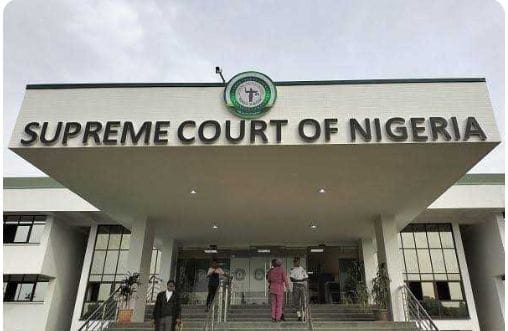In a landmark decision, the Supreme Court of Nigeria has ruled that states cannot control the funds allocated to the 774 local governments, emphasizing the autonomy of local governments in managing their own finances.
The case, titled Federal Government of Nigeria (FGN) vs. 36 States, underscores the need for governors to respect the financial independence of local government areas (LGAs) and refrain from treating state funds as extensions of their administrative reach.
The dispute arose when several states were found to be exercising undue control over the disbursement of funds meant for local governments.
The governors of these states were accused of using the funds for state-level projects, effectively undermining the financial autonomy of the LGAs.
This led to widespread discontent among local government officials and citizens, who felt that their development needs were being neglected.
The Supreme Court, in its judgment, clarified that local government funds are constitutionally protected and should be used solely for the administration and development of local areas.
The court stated that states are “mere post offices for mailing Local Government fund,” highlighting that governors should not interfere with the direct allocation and use of these funds.
The ruling emphasized that governors need to act as the chief executives of their states rather than as “chairmen-general of LGAs.”
This distinction is crucial in ensuring that local governments can operate independently and address the specific needs of their communities without undue state interference.
The Supreme Court’s decision has significant implications for the governance and development of local areas across Nigeria.
It reinforces the principle of fiscal federalism and the decentralization of power, which are essential for effective and responsive governance.
- Enhanced Local Autonomy: Local governments will have greater control over their finances, enabling them to plan and execute development projects tailored to the needs of their communities. This autonomy is expected to lead to more efficient and targeted use of resources.
- Improved Accountability: With direct access to their funds, local governments will be more accountable to their constituents. This transparency is likely to reduce corruption and ensure that funds are used for their intended purposes.
- Balanced Development: The ruling promotes balanced development across the country by ensuring that local governments can prioritize projects that address local challenges. This can lead to improved infrastructure, healthcare, education, and other essential services at the grassroots level.
While the ruling is a significant step towards strengthening local governance, its implementation may face challenges.
Some state governments might resist relinquishing control over local funds, and there could be attempts to circumvent the court’s decision.
Ensuring compliance will require robust oversight and enforcement mechanisms.
Local government officials will also need capacity-building and training to manage their finances effectively. Proper financial management practices must be instituted to prevent mismanagement and ensure that funds are used efficiently.
The Supreme Court’s decision in FGN vs. 36 States marks a pivotal moment in the quest for better governance in Nigeria.
By affirming the financial independence of local governments, the court has paved the way for more responsive, accountable, and effective local administration.
As the ruling is implemented, it is hoped that the enhanced autonomy of local governments will lead to tangible improvements in the quality of life for Nigerians across the country.



